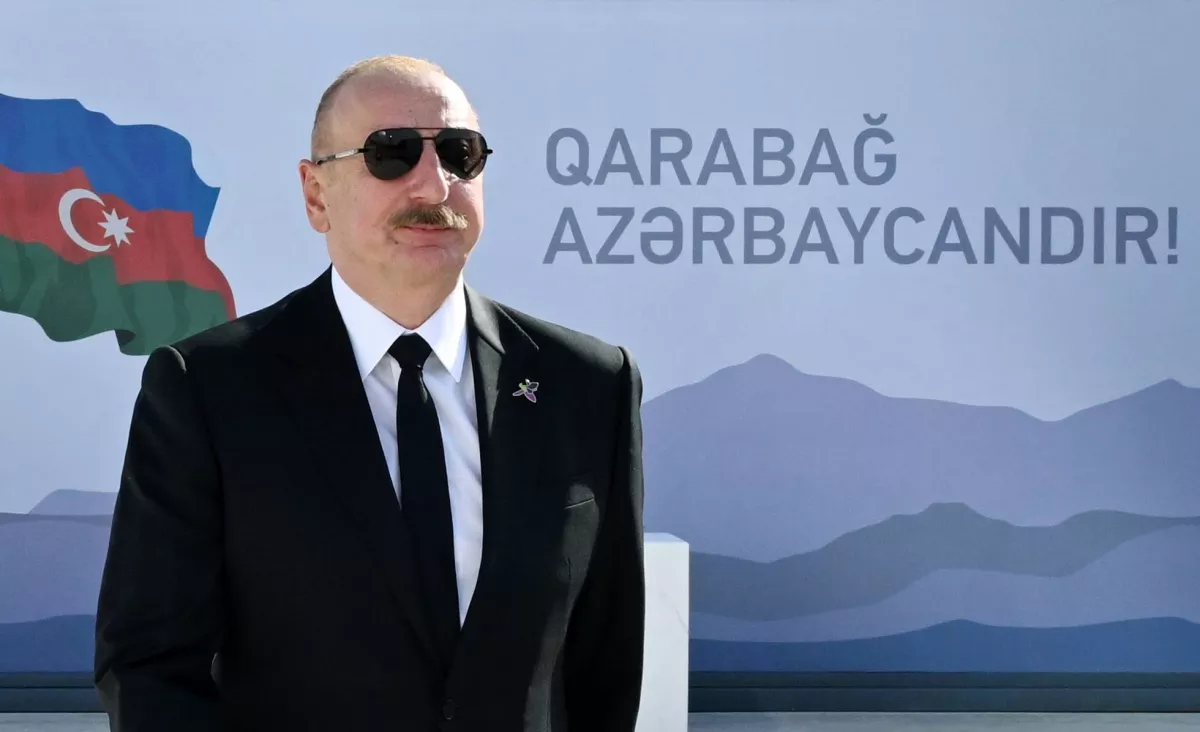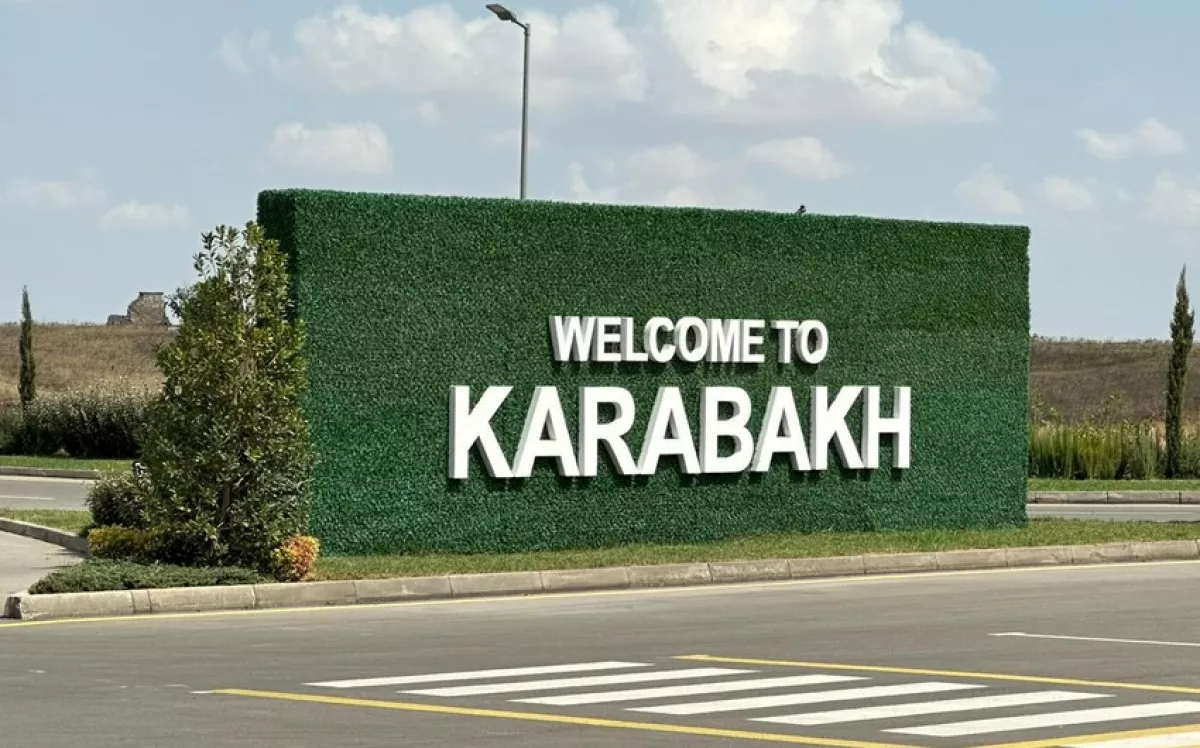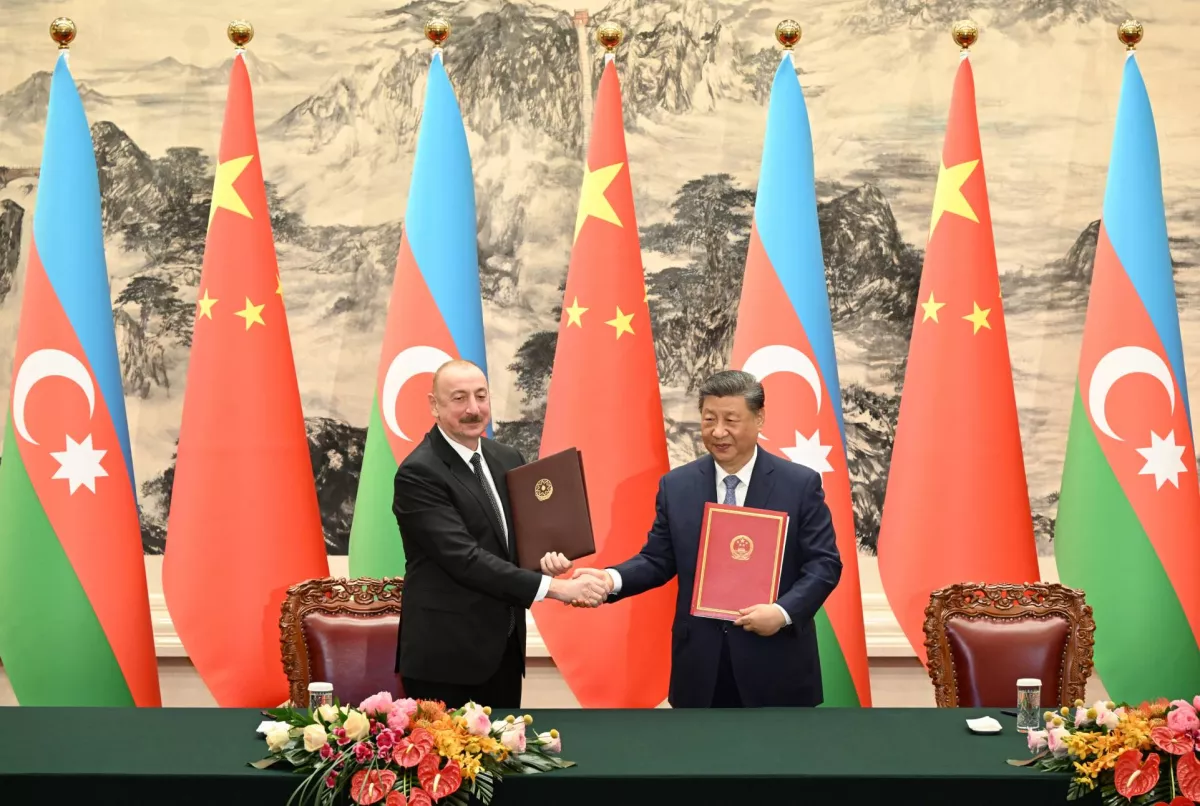They drew the borders, we charted the route… On the occasion of Azerbaijan’s Independence Day
On May 28, Azerbaijan celebrates Independence Day — a date that grows in meaning with each passing year. In today’s world, where even great powers sometimes find themselves hostage to external forces, true independence has become an exceptionally rare treasure. Loud words can easily conceal emptiness. But genuine independence demands substance, action, and character. This is precisely what the Azerbaijani path is filled with.
If in the 20th century independence was measured solely by borders, an army, and a flag flying over government buildings, then in the 21st century it is tested by the ability to withstand multilayered pressure — economic, informational, and diplomatic. At times, this pressure comes not from a single power centre, but from several at once. And no one gives direct orders. Rather, conditions are created in which “agreeing” becomes easier than resisting.
States that lack internal resilience, political will, and strategic thinking quickly lose their autonomy, becoming executors of someone else’s will under the guise of partnership. This is especially evident in the post-Soviet space, where many countries have chosen either complete dependence on Moscow or excessive alignment with the West, substituting national interests with short-term loyalty.
Azerbaijan, however, has taken a different path. There was no attempt to integrate into someone else’s orbit at any cost, no desire to please the powerful of this world at the expense of its own agency. On the contrary, Azerbaijan’s entire political course is a carefully constructed system in which sovereignty has become a conscious, consistently implemented state policy.
We do not play the role of a puppet in someone else’s geopolitical game; instead, we act according to our own logic — calmly, yet with firm confidence in the righteousness of our decisions.

I would not be mistaken in calling the restoration of territorial integrity the main and most significant achievement of Azerbaijan’s independent policy. This is about resolving a historical challenge that for decades remained in limbo — frozen, postponed, burdened by formulas that did not allow for real progress. Throughout this time, the conflict served the interests of external players for whom the status quo was a convenient tool of control.
The restoration of territorial integrity would not have been possible if Azerbaijan had been embedded in someone else’s frame of reference, forced to measure every step by the moods of other capitals. For too long, behind the façade of the so-called “peace process,” formulas were imposed in which justice was deliberately pushed aside, replaced by calculations of political expediency, and sovereignty was treated as a convenient bargaining chip in deals between external players.
Under the guise of compromise, approaches were imposed that stripped the very idea of territorial integrity of its substance, turning it into a rhetorical formality — without mechanisms for implementation, without guarantees, and, most importantly, without any real intention to bring it to a practical conclusion.

The victory in Karabakh is the result of a long and carefully crafted state strategy, in which consistency, refusal to make fundamental concessions, and the mobilisation of all resources played a key role. Azerbaijan was prepared for the moment when circumstances allowed action — politically, diplomatically, and militarily.
In Azerbaijan’s case, sovereignty proved not to be an abstract concept or a declarative formula, but an effective political tool capable of turning strategic patience into concrete results. And when the moment came that demanded decisiveness, Baku acted — within the framework of international law, in accordance with its own interests, and with an understanding of its historical responsibility.
And it achieved its goals. Not because anyone allowed it, but because it was ready — politically, morally, and institutionally. This is how true sovereignty works.
At the same time, Azerbaijan continues to consistently support the territorial integrity of other states, whether it be Georgia or Ukraine. This is not a matter of fleeting political convenience, but a deeply held principle based on respect for international law and an unwavering commitment to its foundations. Even when such a stance requires courage and invites criticism, Baku remains true to itself. Because one cannot demand respect for one’s own borders while turning a blind eye to the violation of others’. Could Azerbaijan have stayed silent? Perhaps. But then it would no longer be ourselves.
Another eloquent testament to the maturity and independence of Azerbaijan’s foreign policy course is its ability to build stable and mutually respectful relations with countries that find themselves in complex and often antagonistic political spheres. For example, the alliance with Türkiye— a brotherly nation bound to Azerbaijan not only by historical, ethnocultural, and linguistic ties, but also by a deep mutual understanding on key issues of regional security, energy, logistics, and defence cooperation — grows stronger every year, gaining concrete substance.

Against this backdrop, it is particularly telling that Azerbaijan—while remaining firmly committed to its values and allied obligations—also maintains some of the most stable and open relations with Israel among all Muslim-majority countries. These ties are built on a deep mutual interest in economic, technological, and defence cooperation, and they do not contradict our principled position in relations with our brotherly nation, Türkiye.
Moreover, in the current climate of regional turbulence, Azerbaijan demonstrates a unique ability to strike a fine diplomatic balance—effectively serving as a channel of communication between Ankara and Tel Aviv. This role was not imposed on Azerbaijan from the outside; on the contrary, it emerged naturally as a reflection of the country’s authority as a reliable, balanced, and independent player in international affairs.
Examples like this underscore that sovereignty also means the ability to pursue a multi-vector and meaningful foreign policy—one that stays true to national principles while remaining open to dialogue with a diverse range of partners.

A telling episode that underscored Azerbaijan’s maturity was the incident involving the downed Azerbaijan Airlines (AZAL) aircraft — a case that, in some countries, might have been swept under the rug, archived, or reduced to a dry bureaucratic formality in the name of “maintaining stable relations.” What does a state accustomed to dependence usually do in such a situation? Typically — it stays silent. But not Azerbaijan.
Azerbaijan did not revert to old reflexes or hedge its statements with vague formulations. Official Baku expressed its position openly, unambiguously, and without diplomatic equivocation. The key message was clear: neither the circumstances, nor the stature of the party involved, nor the history of past relations can justify actions that put the lives of Azerbaijani citizens at risk.
This was not a reaction cleared with anyone, nor a gesture aimed at domestic sentiment. It was a principled stance, taken and voiced precisely because Azerbaijan is a state that has both the right — and, crucially, the political will — to independently assess events and act according to its own interests. We did not trade silence for diplomatic calm. We did what an independent country does: said what needed to be said, and acted as we deemed right.
And in that lies the essence of modern Azerbaijani sovereignty. It does not change depending on who stands on the other side — whether North or South, East or West — when national security is at stake, Baku’s response will always be direct, justified, and unambiguous.
This same approach is evident in Azerbaijan’s participation in international alliances. The establishment of a comprehensive strategic partnership between Azerbaijan and China is neither a trend-driven move nor an attempt to counterbalance Beijing with another actor. It is a calculated choice — a partnership built on mutual respect and a clear understanding that relations must be developed without interference in domestic affairs. China represents a vast market, cutting-edge technologies, and vital infrastructure — connections that must be strengthened not in rhetoric but in practice. The fact that Azerbaijan engages in dialogue with such a global power on equal footing speaks volumes.

Equally telling is the evolution of relations with Iran. Not long ago, official statements from both sides resembled an exchange of reproaches. Today, however, Baku and Tehran have established a pragmatic and increasingly constructive line of communication. This shift became possible thanks to Azerbaijan’s firm stance: it does not seek confrontation, but it will not allow anyone to dictate how it should live. It was firmness — not appeasement — that laid the foundation for restoring dialogue.
Of course, we do not idealise our country. Like anywhere else, challenges exist — but they are being addressed. Not in a single day, not always without missteps, but always through our own will.
To be independent does not mean to stand against everyone. It means to remain true to oneself — to make decisions not because someone said so, but because you believe them to be right. We spoke up when it was necessary to speak, and we acted when there was no other path. All of this — under the leadership of a strong leader who did not allow the country to stray from its chosen course. And if there is anything worth holding on to until the very end, it is precisely this. Because this is the only way to preserve who we are — and pass on something truly meaningful to those who come after us.
Timur Huseynov
Editor-in-Chief, Caliber.Az








